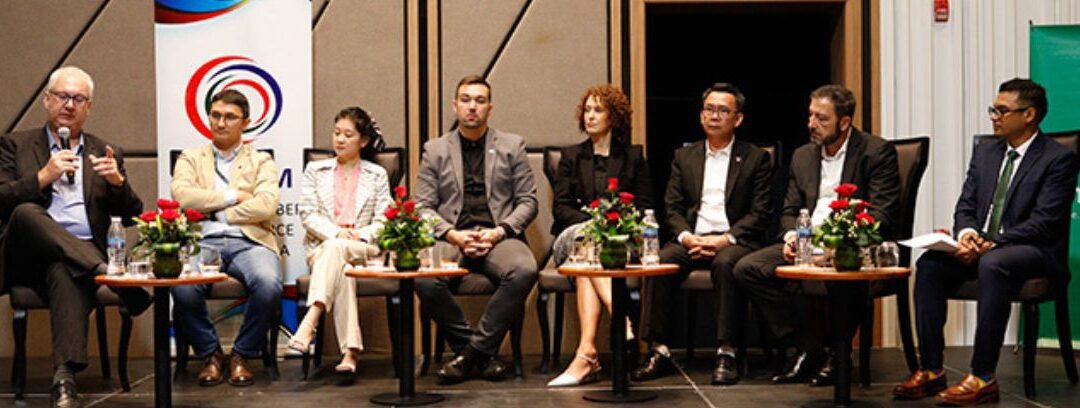Private sector is playing a key role in the digital transformation of the economy and society in Cambodia besides creating jobs, said Sok Puthyvuth, Secretary of State, Ministry of Post and Telecommunications, recently.
While giving the keynote address at TechFin Future Conference 2023, organized by the Indian Chamber of Commerce (InCham) in Cambodia, recently, Puthyvuth also brought attention to the high potential of private-public partnerships in driving the digital economy ambitions.
He said that technology has always been a catalyst in Cambodia’s economic growth and the Digital Economy and Society Policy Framework 2021-2035 is providing the roadmap towards the country’s digital transformation.
According to Puthyvuth, National Council for Digital Economy and Society chaired by Prime Minister Hun Sen is the highest body giving direction to the policy implementation and coordinating relevant institutions. Under this, three committees have been envisaged – Digital Economy and Business Committee, Digital Government Committee and Digital Security Committee.
Meanwhile, the TechFin conference with the theme ‘Emerging Technologies Shaping the Future of Financial Services,’ brought together industry experts, thought leaders and innovators to deliberate the emerging technological developments in the financial services landscape.
The panel discussion, moderated by digital expert Niraj Gupta, was participated by leading experts in fintech, banking, telecommunication, payment service provider, and data analytics. This diverse array of perspectives enabled attendees to gain a comprehensive understanding of the multi-faceted changes underway.
Topics covered included the integration of artificial intelligence and machine learning in financial processes, the emergence of robo advisors in financial services, fintech collaboration and open banking, the rise of digital transformation of payments, and the role of current leaders in achieving digital transformation strategy.
One of the highlights was the deliberation on the potential of AI technology to revolutionize traditional financial systems. Speakers emphasized its ability to enhance security, transparency, and efficiency in transactions, offering numerous possibilities for streamlining processes and reducing costs.
The integration of artificial intelligence and machine learning in financial services also took centre stage. Panelists explained how these technologies are reshaping customer experiences, enabling personalized financial advice, and automating various tasks, from fraud detection to investment management.
Throughout the discussion, panelists acknowledged the challenges associated with these emerging technologies, such as financial literacy considerations, privacy concerns, and the need for upskilling the workforce. However, they also emphasized that proactive collaboration between industry stakeholders, policymakers, and innovators is crucial to harness the potential of these technologies while addressing potential risks.
The financial sector has experienced a remarkable transformation in recent years, with the emergence of groundbreaking technologies giving birth to the TechFin phenomenon. As the conference progressed, participants eagerly engaged in dialogue, seeking to unravel the intricate relationship between technology and finance, and exploring the opportunities and challenges these developments present.
In his opening remarks, InCham President Sandeep Majumdar called for greater cooperation between various business chambers in Cambodia to keep the country on the path of development.
While recalling the recent visit of a high-level Indian business delegation to Cambodia probing business and investment opportunities in the country, he said the chamber is making efforts to bring more delegations from India such as women entrepreneurs and youth business leaders.
